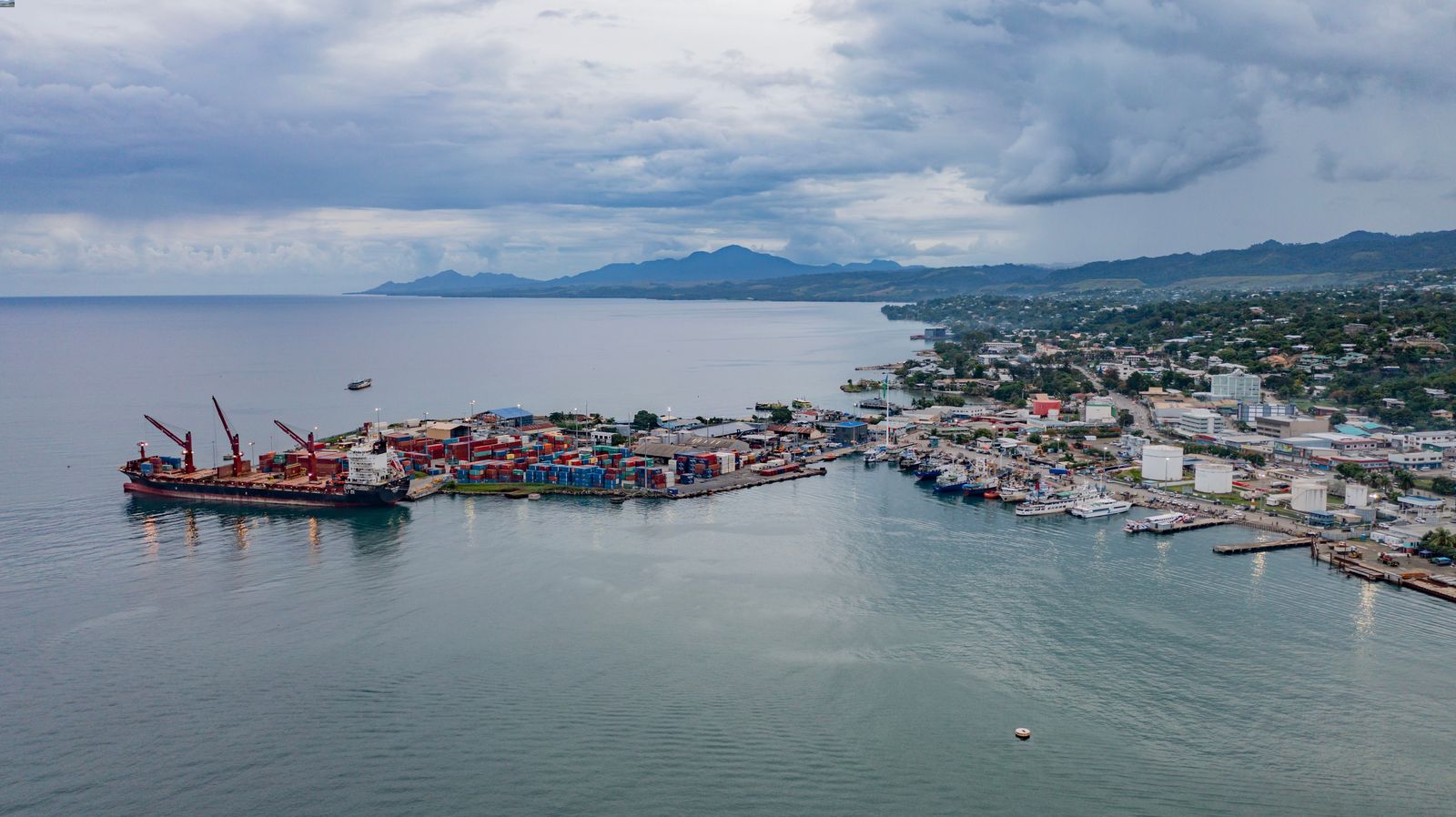
Where are the Solomon Islands? The Solomon Islands are a group of islands in the South Pacific Ocean, east of Papua New Guinea. This nation consists of six major islands and over 900 smaller ones. The capital city, Honiara, is on the island of Guadalcanal. Known for their stunning natural beauty, these islands boast lush rainforests, vibrant coral reefs, and rich cultural heritage. The Solomon Islands have a population of around 700,000 people, with diverse languages and traditions. Despite their remote location, these islands played a significant role during World War II. Ready to learn more about this fascinating place? Let's dive into 15 intriguing facts about the Solomon Islands!
Key Takeaways:
- The Solomon Islands, with over 900 islands, offer unspoiled natural beauty, diverse marine life, and rich cultural traditions, making it a paradise for nature lovers and history enthusiasts alike.
- From lush rainforests to vibrant coral reefs, the Solomon Islands boast Mount Popomanaseu, the Battle of Guadalcanal, and a resilient economy deeply connected to the land and sea.
Geography and Nature
The Solomon Islands, a stunning archipelago in the South Pacific, boast a rich tapestry of natural wonders. From lush rainforests to vibrant coral reefs, this island nation is a paradise for nature lovers.
-
The Solomon Islands consist of over 900 islands, but only about 347 are inhabited. This means there are countless unspoiled spots waiting to be explored.
-
The islands are home to some of the world's most diverse coral reefs. Divers and snorkelers can witness an array of marine life, including over 1,000 species of fish.
-
Mount Popomanaseu, the highest peak in the Solomon Islands, stands at 2,335 meters. It offers breathtaking views and challenging hikes for adventurous travelers.
-
The islands' rainforests are teeming with unique flora and fauna. Many species found here are endemic, meaning they exist nowhere else on Earth.
History and Culture
The Solomon Islands have a rich history and vibrant culture shaped by centuries of tradition and external influences. The islands' past is as fascinating as their natural beauty.
-
The islands were named after the biblical King Solomon by Spanish explorer Álvaro de Mendaña in 1568. He believed the islands held great wealth, akin to the riches of Solomon's mines.
-
During World War II, the Solomon Islands were a significant battleground. The Battle of Guadalcanal was a turning point in the Pacific theater, marking the first major offensive by Allied forces against Japan.
-
Traditional Melanesian culture remains strong in the Solomon Islands. Many communities still practice age-old customs, including elaborate dances, music, and art.
-
The islands are known for their intricate wood carvings. These carvings often depict ancestral spirits and are used in various ceremonies and rituals.
Economy and Lifestyle
Life in the Solomon Islands is deeply connected to the land and sea. The economy relies heavily on natural resources, and traditional lifestyles are still prevalent.
-
Fishing is a primary source of livelihood for many islanders. The surrounding waters are rich in tuna, which is a significant export product.
-
Agriculture also plays a crucial role in the economy. Islanders grow crops like coconuts, cocoa, and palm oil, which are vital for both local consumption and export.
-
The Solomon Islands have a predominantly rural population. Many people live in small villages and rely on subsistence farming and fishing.
-
The islands face challenges such as limited infrastructure and vulnerability to natural disasters. However, the resilience and resourcefulness of the people are evident in their daily lives.
Unique Facts
Beyond the well-known aspects, the Solomon Islands have some unique and lesser-known facts that add to their charm.
-
The islands are home to the world's largest saltwater lagoon, Marovo Lagoon. This UNESCO World Heritage site is a haven for marine biodiversity.
-
The Solomon Islands use the Solomon Islands dollar (SBD) as their currency. Despite being a small economy, the islands have a vibrant local market scene.
-
The islands have a rich oral tradition. Stories, legends, and history are passed down through generations by word of mouth, preserving the cultural heritage.
The Solomon Islands are a captivating blend of natural beauty, rich history, and vibrant culture. Each fact about this island nation reveals a piece of its unique identity.
Final Thoughts on Solomon Islands
The Solomon Islands is a place full of history, culture, and natural beauty. From its role in World War II to its diverse ecosystems, this island nation offers a lot to learn and appreciate. The unique languages spoken, the traditional practices still alive today, and the rich marine life make it a fascinating destination. Whether you're interested in history, nature, or culture, the Solomon Islands has something to offer. It's a reminder of how diverse and interconnected our world is. So, next time you think about traveling or learning something new, consider the Solomon Islands. You might find more than just a beautiful place; you might find a deeper understanding of our shared human experience.
Frequently Asked Questions
Was this page helpful?
Our commitment to delivering trustworthy and engaging content is at the heart of what we do. Each fact on our site is contributed by real users like you, bringing a wealth of diverse insights and information. To ensure the highest standards of accuracy and reliability, our dedicated editors meticulously review each submission. This process guarantees that the facts we share are not only fascinating but also credible. Trust in our commitment to quality and authenticity as you explore and learn with us.


